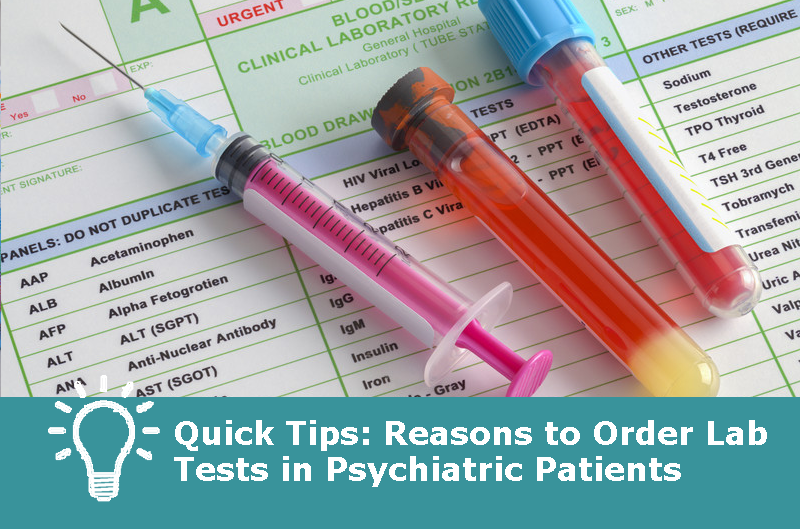Reasons to Order Lab Tests in Psychiatric Patients
The Carlat Psychiatry Blog, Volume , Number ,
https://www.thecarlatreport.com///
The decision to order lab tests can sometimes be a no-win situation. Tests are costly, and have the potential to yield false positive abnormalities, which may lead to further unnecessary testing. But if you don’t order tests, you could also miss a genuine problem. In an article from The Carlat Psychiatry Report, Rajnish Mago, MD, Director of the Mood Disorders Program at Thomas Jefferson University in Philadelphia, PA, gave advice on ordering lab tests. He says that you should consider ordering labs for the following reasons: 1. For assessing your patient’s general health 2. To rule out substance use issues 3. For checking the patient for liver or renal disease, or pregnancy 4. To get baseline values for things that could go wrong later Subscribers can read the entire article, including handy tables on which labs to choose.
You may have patients who rarely, if ever, see another doctor for regular checkups. However, even if you order labs to evaluate general health status, you should still refer the patient to a primary care physician. You should also try to establish a system to share lab tests with your patient’s PCP.
Even when they don’t technically have a substance use disorder, we know that some patients are not honest about their substance use. Substances can affect the pharmacokinetics of most medications that we prescribe, and can also complicate the treatment of many disorders.
Since these conditions may affect the pharmacokinetics of most medications, ask if the patient has had liver or kidney disease. If there is a history of liver or kidney disease, be sure to do hepatic or renal function tests. Also, if there is any chance that the patient may be pregnant, be sure to get a pregnancy test.
The tests we should run also depend on the potential adverse effects of certain medications. The fasting serum glucose and serum sodium tests are usually done as part of a Basic Metabolic Panel (formerly called a Chem-7), and platelet count is done as part of a Complete Blood Count.
Finally, don’t test for things that are a) exceedingly rare and/or b) unpredictable and/or c) occur very rapidly and are, therefore, not preventable. As just an example, checking a complete blood count before starting mirtazapine is not required. Agranulocytosis, even if it is associated with mirtazapine, is extremely rare.


